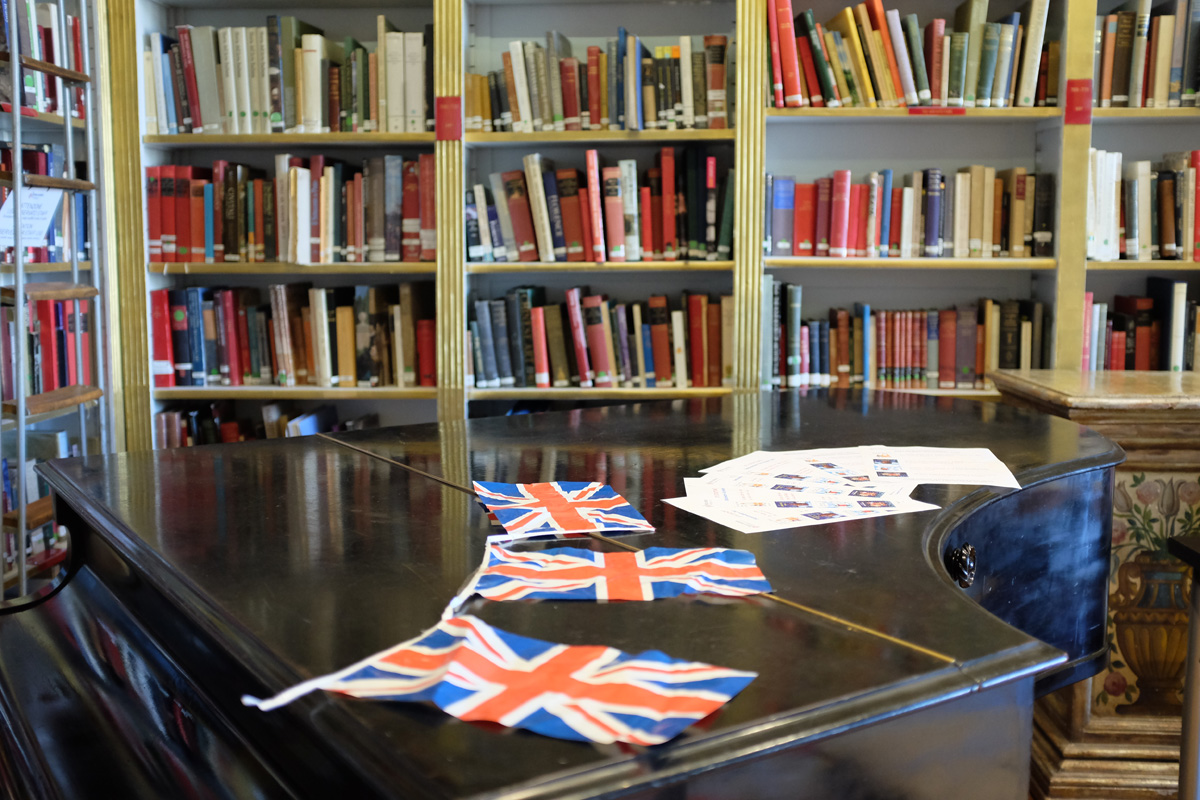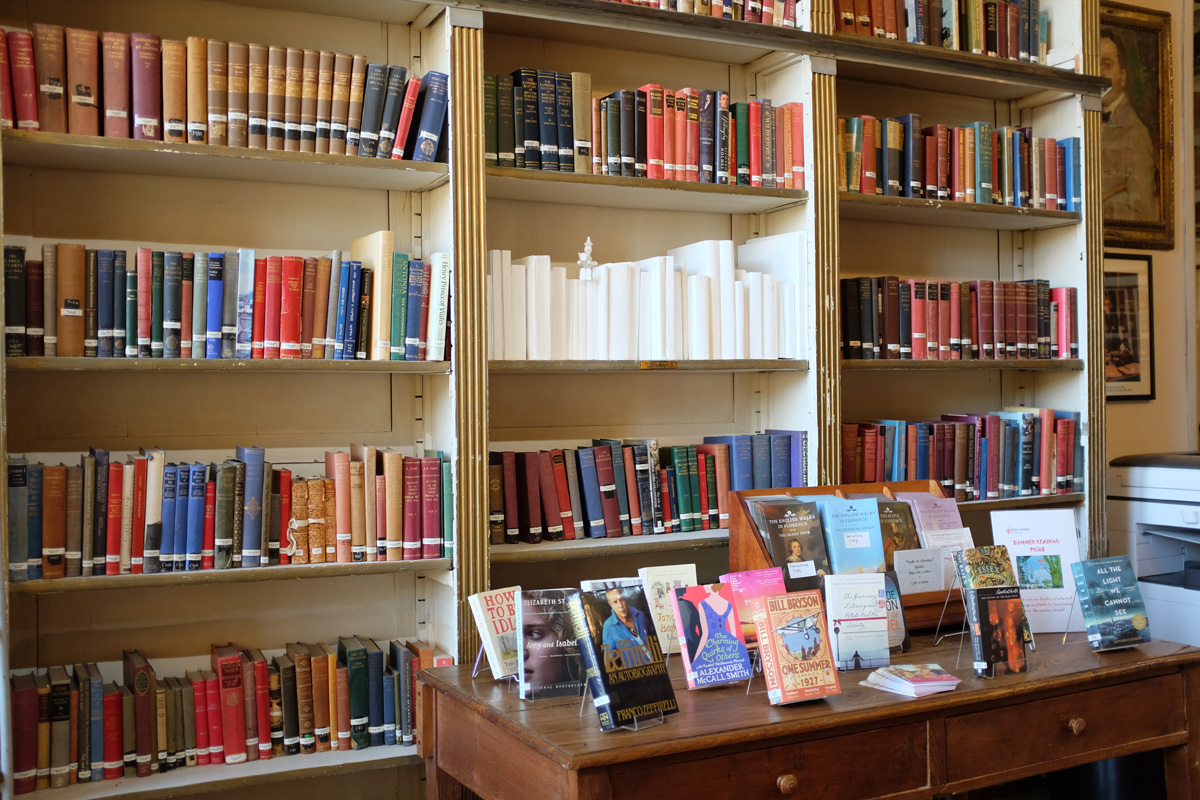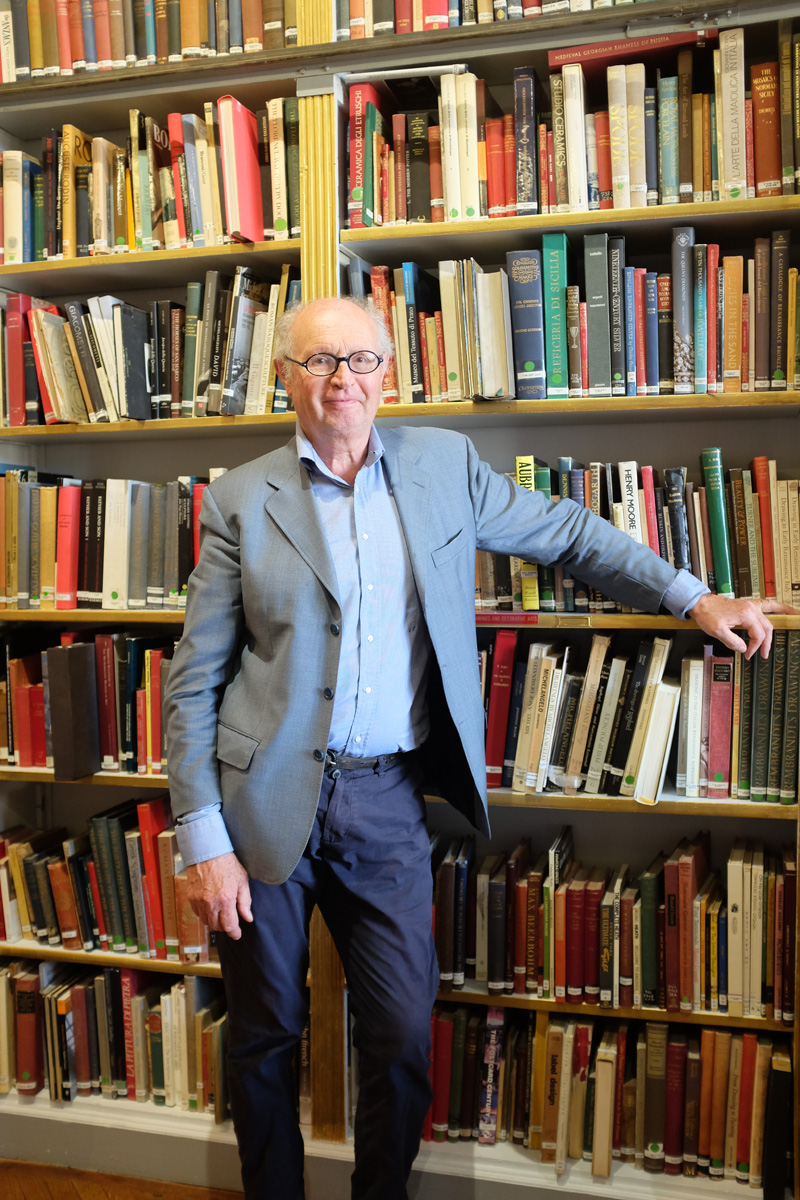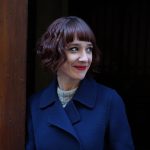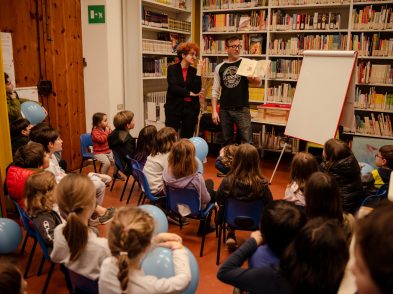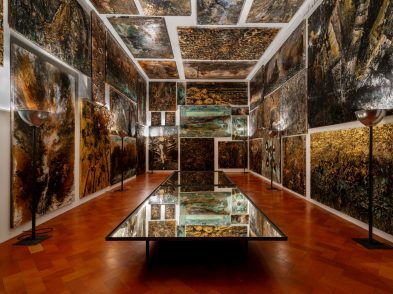An institution at The British Institute of Florence, Mark Roberts has been the warm face that greets you when you enter the historic book-lined walls of the Harold Acton Library at Lanfredini. While he will no longer be that friendly wealth of wisdom at the door, he will remain a part of proceedings as consultant for the popular cultural programme.
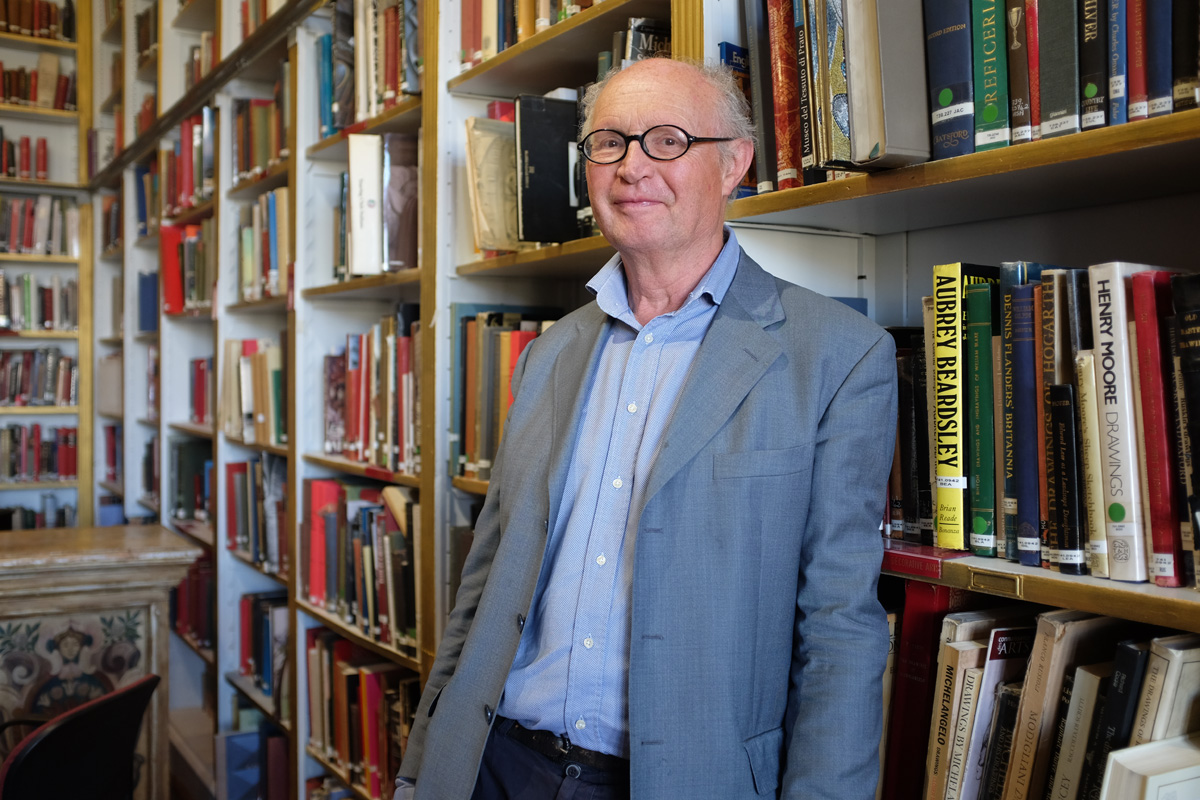
Mark Roberts at the Harold Acton Library
Jane Farrell: What brought you to Florence?
Mark Roberts: I came here to study at the British Institute in 1971 before I went to university and I loved it. I stayed for about three months and worked at the library, dusting books. Then I came back to Florence, for good as it turned out, and got married here in 1977.
JF: What is it that made you stay?
MR: It crept up on me. I had a job in the library right from the beginning and both my wife and I loved being in Florence, but we didn’t expect to stay so long. I had thought it would be for about five years, but when our children started to be born here, and we put down roots, one thing led to another. After ten years living in rented accommodation, we bought a house in 1987 and we’ve lived there ever since.
JF: How has your role changed in the library?
MR: I was appointed by Ian Greenlees as the assistant to Robin Chanter, who was librarian. When they left, I became librarian by default and I remained so for about 18 years. I went on to become part-time around the year 2000 and since then I’ve been much more occupied with planning the cultural programme. I’ve always been second-in-command to a trained librarian; I’m not a trained librarian myself. I’m very fond of books and I have a certain knowledge of this library, but I wouldn’t have been capable of choosing the software when it was decided to digitize the catalogue. That was beyond my field of expertise and I’m pleased that we’ve had a set of professional librarians, all of which have been women, most recently Giulia Galeazzi.
JF: What do you love about the library?
MR: I love the library for all sorts of reasons. It lives up to its Royal Charter and its aims to illustrate British and Italian culture in interesting ways. I like the way it has grown through accretion, by people donating their collections of books, so it has grown in an organic way. It has its gaps definitely; it’s not a very scientific library, but I think it has also got fascinating pools of intensity, unusual collections here and there. I’m very fond of the Early English Text Society publications, which must be about 300 volumes. I think it’s the only set in Italy, or at least I’ve never come across another one and I personally like Medieval English very much. It was what I concentrated on when I studied English at Oxford.
JF: What can you tell us about the library that people would be interested to hear?
MR: The palazzo was built in 1515 by Baccio d’Agnolo for Lanfredino Lanfredini, a member of the Florentine nobility. The part that became the library was bought by the Acton family in the 1920s. Harold Acton made it available in 1966, the year of the flood, when the Institute was turned out of Palazzo Antinori and 50,000 books were moved across the Arno into the empty rooms of the palazzo.
JF: What changes have you observed within the British Institute?
MR: Alas, people use the library much less than they used to. When I arrived here, there were a lot of mostly young women who were enrolled at the university doing their theses in English Literature. They were a great feature of our daily lives because we had to follow them and find the books for them. That hardly exists now. Either because the university libraries are much improved or because they are put off by the fees. I’ve always enjoyed the human contact with the library users. I think that’s a very important part of it all, fostering this sense of community. Americans don’t have a cultural centre in Florence, but they are a wonderful support to us. A lot of them come to our weekly cultural programme and they regularly use the library. We also have many international members, whereas before it was more English-based.
JF: How have you found integrating into Italian life?
MR: I’ve always found the degree of someone’s integration into the host country interesting. My situation is different to those who are married to an Italian because my wife is English and at home we always spoke in English to our children. Our children are completely bilingual and bicultural. On the other hand, I wouldn’t say that I am bilingual. I can speak Italian, but I’m not a great linguist, nor am I as fully integrated into Italian culture as I would like to be. Perhaps that will be something I will focus on in my retirement. I would also like to write more. I’ve written two books, one on the street names of Florence and another on the popes, but now in my retirement, I hope more ideas will come to me. I will also be continuing at The British Institute of Florence as a consultant for the culture programme, as I have been doing for the last 20 years.

